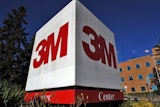
Keeping up with the always accelerating pace of change is a huge theme at this year’s Best Practices for Chemicals conference, hosted by ASUG and SAP.
Held in Houston this week, the conference isn’t just an opportunity for SAP and other players in the digital space to talk about their latest innovations — it’s also a space to hear about and discusses the big ideas transforming the industry.
And while it may not be news that digital innovations have changed everything, it’s important to note that this revolution is far from over. Embrace that fact and use it to your advantage, or your company may not survive.
That was the takeaway from a keynote by Keith Sturgill, vice president and CIO at Eastman Chemical Company.
“It’s better to be the disrupter than to be the disrupted,” Sturgill said.
To illustrate the point, Sturgill referenced a common case-in-point in the business world: Uber is the biggest transportation company, but it doesn’t own any cars. And Airbnb is the biggest hospitality company but it doesn’t own any property.
What can chemical companies learn from those examples?
“They’re [taking advantage of] unused capacity that already existed,” Sturgill said. The trick is figuring out how to use that same strategy in your own company.
One approach would be to look at how data is processed. Thus far, most of the digital and IoT upgrades in chemical production have involved automation and streamlining processes. Now, companies are often dealing with massive data dumps and spending large amounts of time trying to figure out what to do with it all.
 Keith Sturgill, speaking at Best Practices for Chemicals in Houston
Keith Sturgill, speaking at Best Practices for Chemicals in HoustonSturgill compared the situation to when we used to wash clothes by hand. Once the washing machine came along, it suddenly freed up homemakers to use that time in new and exciting ways.
“We’re still washing data by hand,” Sturgill said.
If that process could be automated, Sturgill argued it would free up employees to do what humans do best: design, create and innovate.
And instead of replacing employees, analytical tools can help the company make smarter decisions.
“What if...instead of reducing human insight...IT magnified insights?” Sturgill posited.
For example, Eastman uses analytic tools that process data and have helped the company with supply chain logistics such as strategizing purchasing decisions.
For anyone not convinced, Sturgill left the audience with three practical tips:
User Experience Matters
Think about the experience you have with retailers like Amazon, Sturgill suggested. This is what your customers and employees want when interacting with you. For customers, this means having all the needed information for a transaction easily accessible on the spot, along with a system that is easy to navigate.
“Can this be the reason people want to do business with you?” Sturgill said.
For your employees, it means having technology that is just as fast and enjoyable to use as what they have at home.
Culture is Critical
Big changes are always going to happen. The key is to make certain that employees are empowered to leverage those disruptions into positive forward movement for the organization.
Embrace Change
Change isn’t just happening — it’s happening faster and more frequently than ever before. Bottom line?
“Speed and agility will differentiate the winners,” Sturgill said.
And the companies that are a part of inventing the future — instead of being run over by it — are the ones that will thrive.
Stay tuned for more exclusive coverage of Best Practices for Chemicals coming later this month!























